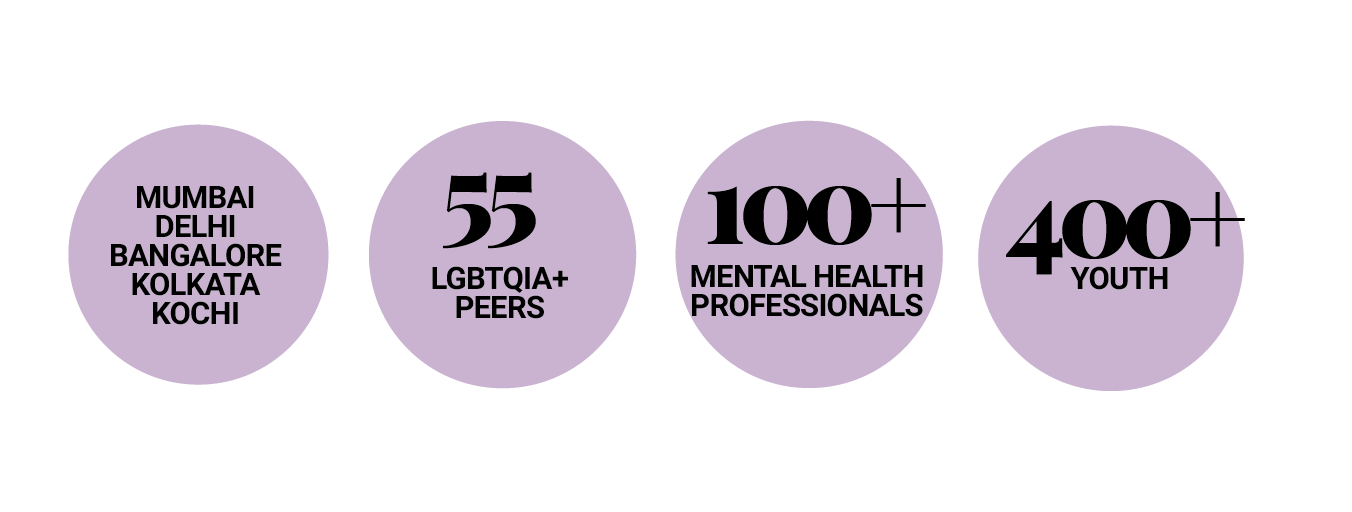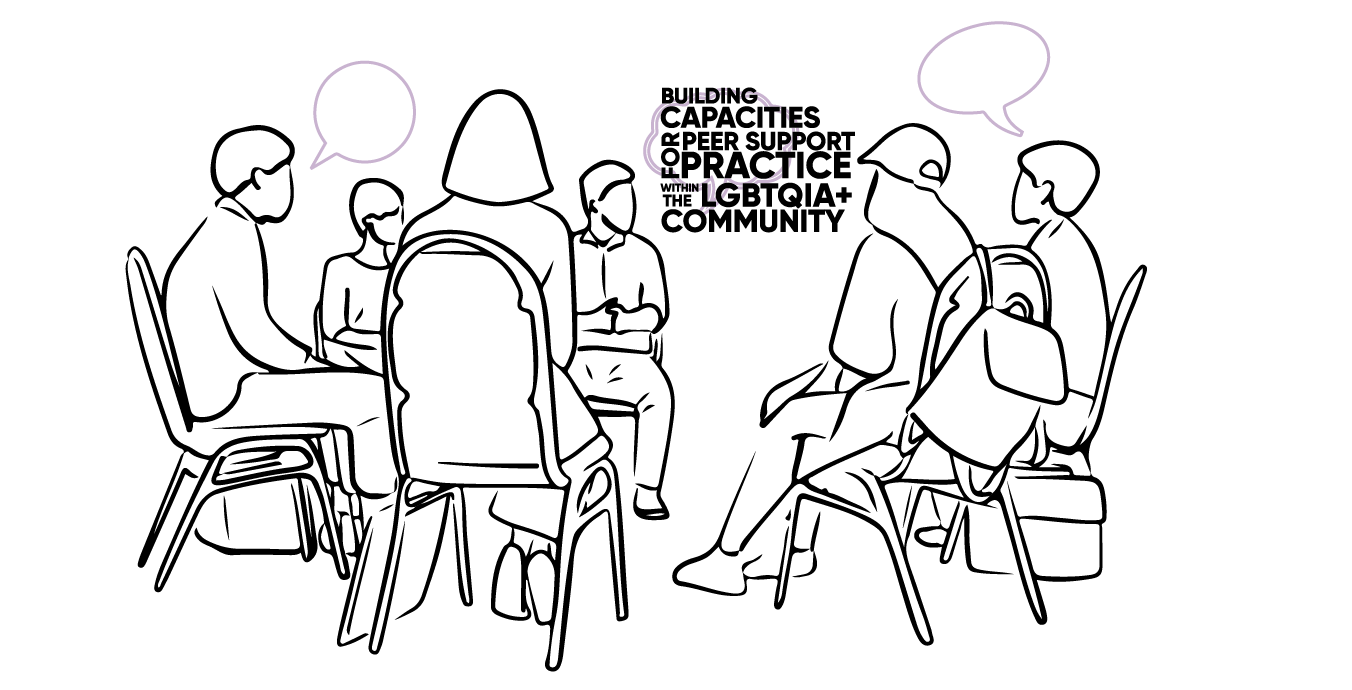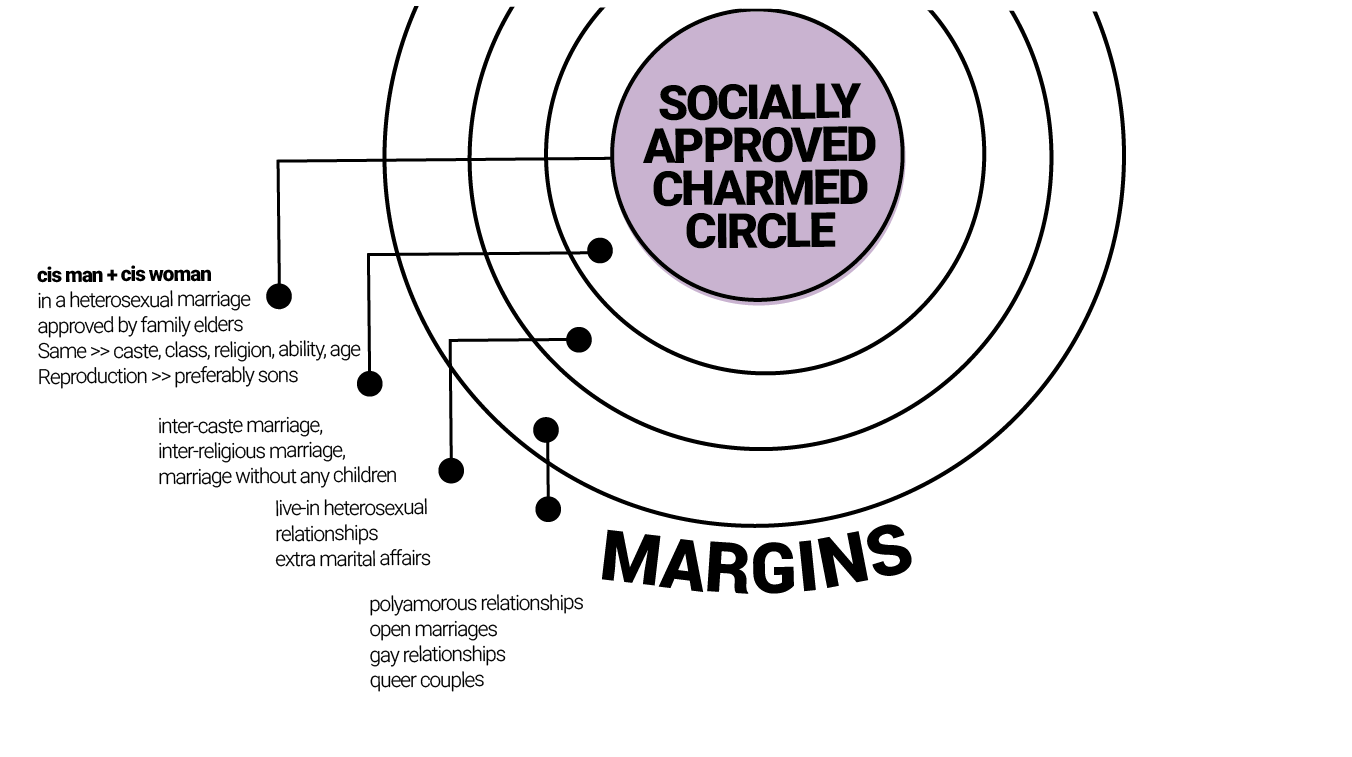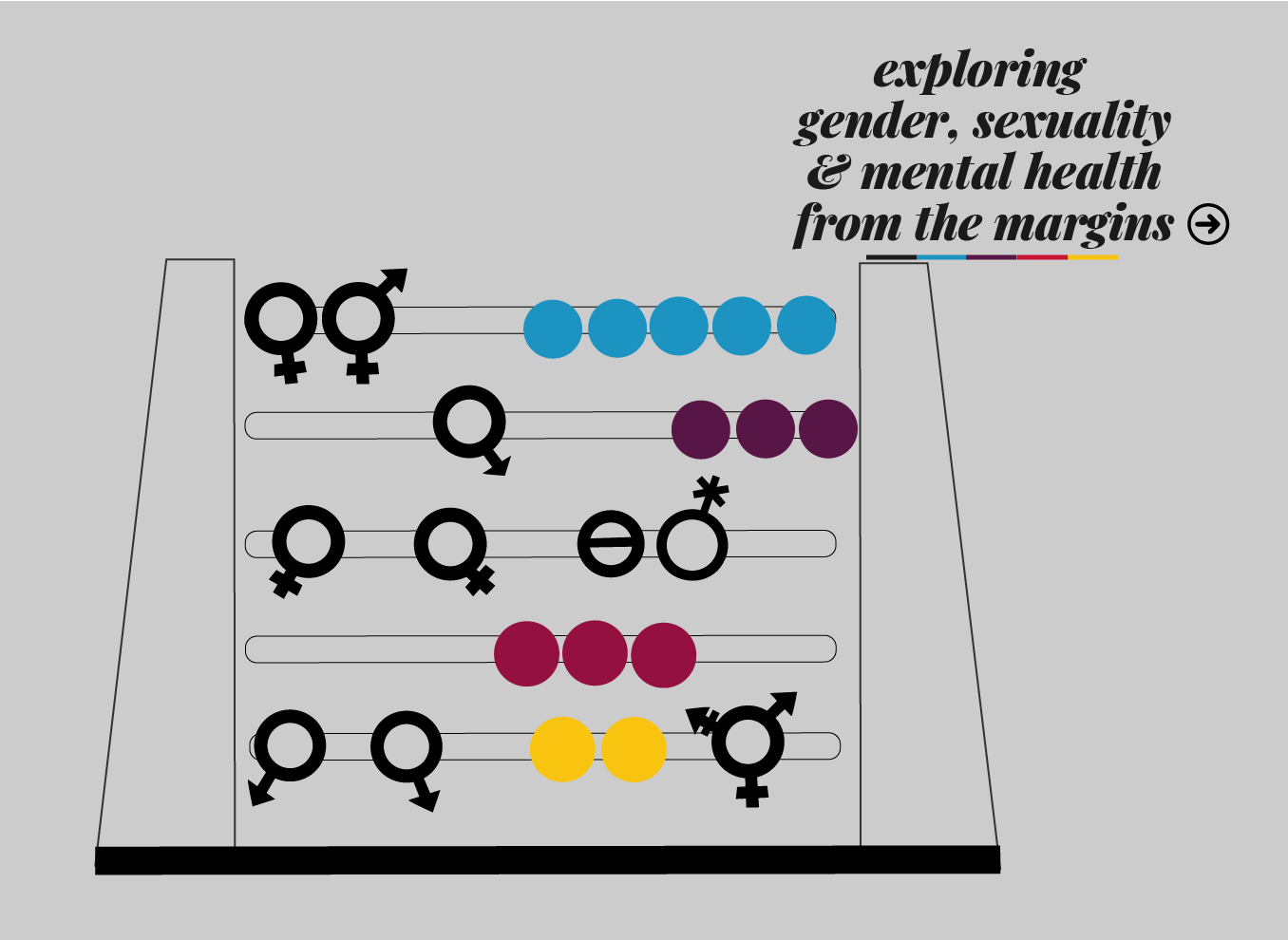Challenging existing pathological representations of LGBTQIA+ lives & countering historical violence & discrimination, in mental health practice
At MHI, we strive to challenge dominant constructs around gender and sexuality, support more LGBTQIA+ groups — and queer mental health itself. There is a largely violent history and legacy of psychiatry with LGBTQIA+ persons. The Diagnostic & Statistical Manual (DSM) of Mental Disorders pathologised marginalised sexualities and genders by calling them sexual perversions, sexual orientation disturbance, transexualism and gender identity disorder. Psychiatry mirrored prevailing social norms and was complicit in excluding, discriminating against and oppressing LGBTQIA+ communities.
We believe that this complicity and oppression necessitates anti-oppressive therapeutic practice. We have been working on a rights-based, queer-affirmative approach to mental health. We do this in a few ways. One program works with mental health practitioners — a certificate course on how to be queer affirmative in counselling practice.
We also work with LGBTQIA+ collectives because peer support is powerful and absolutely necessary. Schools and colleges are an arena where gender and sexuality is monitored and controlled so it is another focus area where we run training programs for both students and faculty members. Finally, we fund LGBTQIA groups for their mental health programs.

Outreach of MHI's Queer-Affirmative Initiatives
Queer Affirmative Counselling Practice
Recognising the need for affirmative, non-discriminatory, anti-oppressive mental health care services for those from marginalized sexualities—MHI initiated Queer Affirmative Counselling Practice (QACP), a six-day training module for mental health practitioners. QACP enables mental health professionals to reorient themselves to an anti-oppressive therapeutic practice. The training covers both perspective building to recognise inequalities and their impact on mental health and also provides tools and techniques to address distress and promote well-being of LGBTQ persons. Over 100 mental health practitioners across three cities have been trained thus far. A national residential version of the course was offered in Mumbai in partnership with Tata Institute of Social Sciences.
“At MHI, we strive to challenge dominant constructs around gender and sexuality, support more LGBTQIA+ groups — and queer mental health itself.”

Partnering with queer collectives
Peer Support Practice
Peer Support Practices (PSP), uses knowledge from the margins, highlights good practices & ethics, and challenges a top-down hierarchy of psy-expert/clinical paradigms in important ways. PSP claims experience and lived reality as valid knowledge that often doesn’t get represented in mainstream ‘expert-led’ practice. MHI is partnering with queer collectives and organisations that have been providing invaluable support to individuals for decades. The PSP module borrows from mental health practice skills to work with support seekers and ethics around power & boundary setting.

Exploring Gender, Sexuality and Mental Health from the Margins
Gender, Sexuality and Mental Health from the Margins
Gender, Sexuality and Mental Health from the Margins (GSMHM) is part of MHIs’ LGBTQIA mental health initiatives that uses a workshop format to take a closer look at the fundamentals of sexuality and gender, from the lens of marginalised genders and sexualities. GSMHM workshops are conducted in colleges and similar educational institutions and aim to sensitise teachers and other stakeholders, enabling them to become more affirmative and inclusive.
